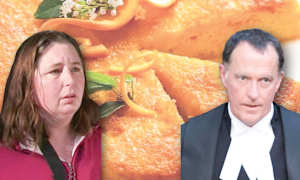CONFUSION reigns supreme after the State Government announced on Tuesday this week that it was extending its Vacant Residential Land Tax (VRLT) to holiday homes across Victoria.
However, in the official media release from the Treasurer Tim Pallas, is the statement: “Existing exemptions will continue to apply statewide, including to holiday homes…”
But in the Herald-Sun, a key caveat is revealed. Holiday homeowners need to be able to prove that they’ve lived at the property “for at least four weeks of the year” if they are to avoid paying 1% of the value of the house each year, which could easily amount to an extra $5000 or $10,000 in tax for holiday homes valued at between $500,000 and $1 million.
The unanticipated spin-off for Bass Coast and South Gippsland resort towns is that homeowners will be encouraged to stay longer and more often simply to avoid getting slugged.
Of course, the holiday homeowners could also avoid the tax by permanently renting the house out for at least half of the year, which is exactly what most of them don’t want to do.
Local real estate agents say people principally buy holiday homes for their own use, but, in increasing numbers, may also put them up on short-stay platforms to recover some of their outgoings.
The new measure, says Mr Pallas, will result in more unoccupied Victorian properties being put up for rent and vacant land developed to build new homes “boosting housing supply and affordability across Victoria”.
“Nothing is more important than finding a place to call home, that you can afford, close to the work, services or community you rely on,” said Minister Pallas.
“We know the best thing you can do to make homes more affordable is supply more of them – this is all about freeing up empty houses for rent and vacant land for new homes, particularly across the outer suburbs and regional Victoria.”
The State Government statement went on to say:
“Legislation to be introduced to the Victorian Parliament this week will provide a financial incentive for owners to rent out empty homes or develop long-term vacant land – providing more homes and more options for Victorians during the critical housing crisis
“The changes will extend the Vacant Residential Land Tax (VRLT) – currently applied to empty residential properties in Melbourne’s inner and middle suburbs for more than six months – to unoccupied residential properties across the entire state.
“The move will encourage owners of unoccupied homes in Melbourne’s outer suburbs and regional Victoria to make these dwellings available for rent or sale – working to ease the housing pressures being felt right across the country.
“It will have a flow-on effect to the rental market by boosting housing stock and helping to ease pressure on rents and prices – providing Victorians with more choice when it comes to where they want to live.
“The period that properties can be deemed vacant will start on 1 January 2024, with the change commencing in 2025.
“Existing exemptions will continue to apply statewide, including to holiday homes, properties recently acquired or regularly occupied for work purposes, and properties being built or renovated.
“Changes will also apply to residential land that has been undeveloped for more than five years in established areas of Melbourne, to discourage long-term land banking and encourage new housing developments.
“This change will close a loophole where VRLT did not apply to unimproved land, enabling this land to slip through the cracks, despite being appropriate for residential development.
“From January 1, 2026, residential land undeveloped for more than five years in established areas of Melbourne will become liable, applying to an estimated 3,000 undeveloped properties.
“The proposed legislation will prohibit unfair apportioning of land tax and windfall gains tax burdens to purchasers through property transfers and will also make total purchase costs more transparent.”









